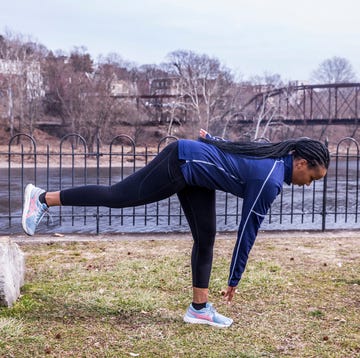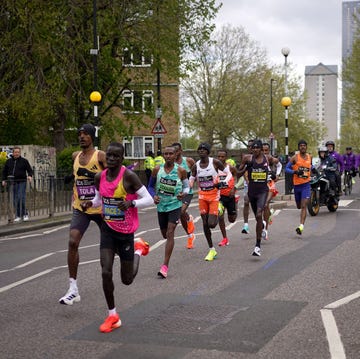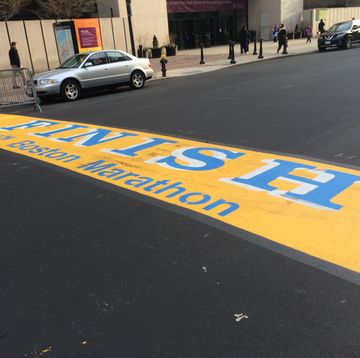Published: Dec 01, 2008 12:00 AM EST?
Former American record-holder in the mile? Cancer survivor? Originator of Speed Golf? They're all true, yet maybe you think numbers: 136 -- the number of sub-4:00 miles he ran; 26 -- the number of years his record of 3:47.69 both drove and haunted a generation of American runners; 32 -- the age at which he finished fifth in the '88 Seoul Olympics.
But for his cross country and track athletes at California State University-San Marcos just north of San Diego, the name Steve Scott simply means "coach."
Now in his 10th season as head cross country coach at Cal State-San Marcos, Scott has had consistent success since helping start the small-school program in 1999. His Cougars have been to the NAIA national championship meet a combined 12 times, with the men taking fourth and the women taking third in 2003. In track, he's helped three athletes win individual national titles, most recently Dallon Williams (3,000m steeplechase) and JUAN MEJIA (marathon) in June.
Scott's success has made him an anomaly -- one of a few former elite American runners who have become successful college coaches. Part of the reason certainly comes from his perspective of having run in a small college program; in the mid 1970s, Scott ran at Cal State-Irvine, which began as an NCAA Division II program before being bumped up to Division I during his senior year.
"The problem with the highest level athletes becoming coaches is that they expect everyone to have the same level of dedication, intensity and desire that they had," Scott says. "So from the very beginning I had to realize that none of these kids were going to have the same level of dedication that I had during my post-collegiate career."
Couple that understanding with the fact that Scott, for all of his post-collegiate accomplishments, was not the focused athlete as a high schooler or even during his first two years of college ("I just faked my way through," he admits) that he eventually was when he earned a 1500m silver medal at the 1983 world championships. And that gives him a unique capacity to empathize with his collegiate athletes and help them become the best runners they can be.
"I could relate to them and understand that they don't have that same level [of desire], but they still want to work hard," he says. "It's my job to get them to have the passion for running. I want them to enjoy it, I want them to challenge themselves, to search for the very best in themselves. Sometimes it works, a lot of times it doesn't, but that's my challenge as a coach."
That approach has paid off for senior Morgan Sjogren. The All-American and school record-holder at 10,000m (35:28 last spring) credits Scott's approach for helping her transition from "just happy to be running in college" as a freshman to a woman who now hopes to place among the top five at this year's NAIA cross country championships on Nov. 22 in Kenosha, Wis.
"It's not that he's not competitive -- he wants us to run fast," she says. "But he's not a cutthroat coach. At the end of the day, if you tried your best and it didn't go the way you wanted, he's not the type to get mad. He'll give you a hug and say 'It's OK. We'll try again.'"
Sergio Gonzalez, who earned All-American honors in cross country and both the 5K and 10K on the track last year, also looks up to Scott, but he admits it took a little longer. "For a couple of years I saw him as a coach but now I see him as a father-figure."
That's understandable given that Upland High School, where Gonzales ran a 4:16 mile as a prep, also claims Scott (who ran 4:15 in high school) as an alum. "It was intimidating at first because you do have an amazing athlete as a coach, but at the same time … he's joking around at practices -- he knows when to work hard but he likes to play around to make sure that the team's having fun and that it's a fun atmosphere."
While Scott's training methodology leans heavily on Irv Ray's synthesis of Arthur Lydiard and Jack Daniels' principles (see Ray and Tony Benson's Run with the Best), there is a key modification for cross country preparation. Scott assigns only mileage in the summer, reserving anything resembling a workout until the athletes convene on campus in late August. His rationale is, "If you have to go out and do a hard workout [in the summer], that's mentally draining," he says. "Yes, they're undertrained when they come in the fall, but they're fresh for the training in the cross country season."
Scott is the first to admit that this approach may not be appropriate in other collegiate settings, yet it fits his broader view of coaching at Cal State-San Marcos. "It's because I'm coaching the level that I'm coaching -- you need to adjust it to the kids you're working with," he says. "If I was at an NCAA Division I program I'm sure I'd have a different coaching philosophy."
Scott thinks his women's team, which returns its top seven runners from a team that placed 13th at nationals last fall, might be able to win it all. Aside from Sjogren (who finished 56th at nationals) and Williams (a senior who didn't run cross last fall), the Cougars also have seniors Whitney Patton (67th) and Jessica Sandoval (77th) and a talented freshman in Caitlin Villarreal.
"It's so gratifying to take a kid -- recruiting them, bringing them in, working with them, developing them and then having them achieve their goals, even if their goals are far below what I achieved or other people are achieving at other universities," he says. "When you help them through that whole process and they improve and are happy with their performance, as a coach it can't make me any happier."
Watch Next

Advertisement - Continue Reading Below
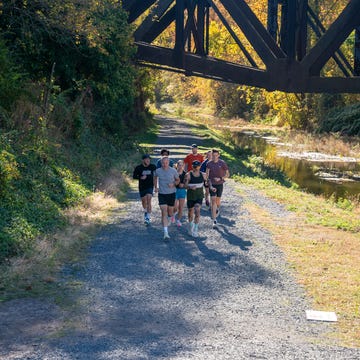
How to Estimate Your Lactate Threshold Pace

How to Better Pace a Marathon Based on Effort
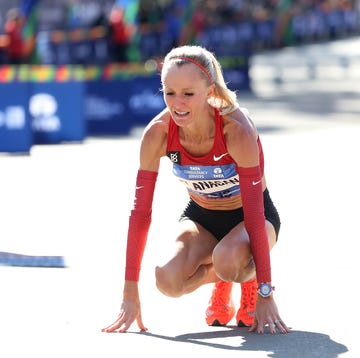
Postrun Recovery Tips from Experts and Elites

New York City Marathon 2024 FAQ
Advertisement - Continue Reading Below
Advertisement - Continue Reading Below

